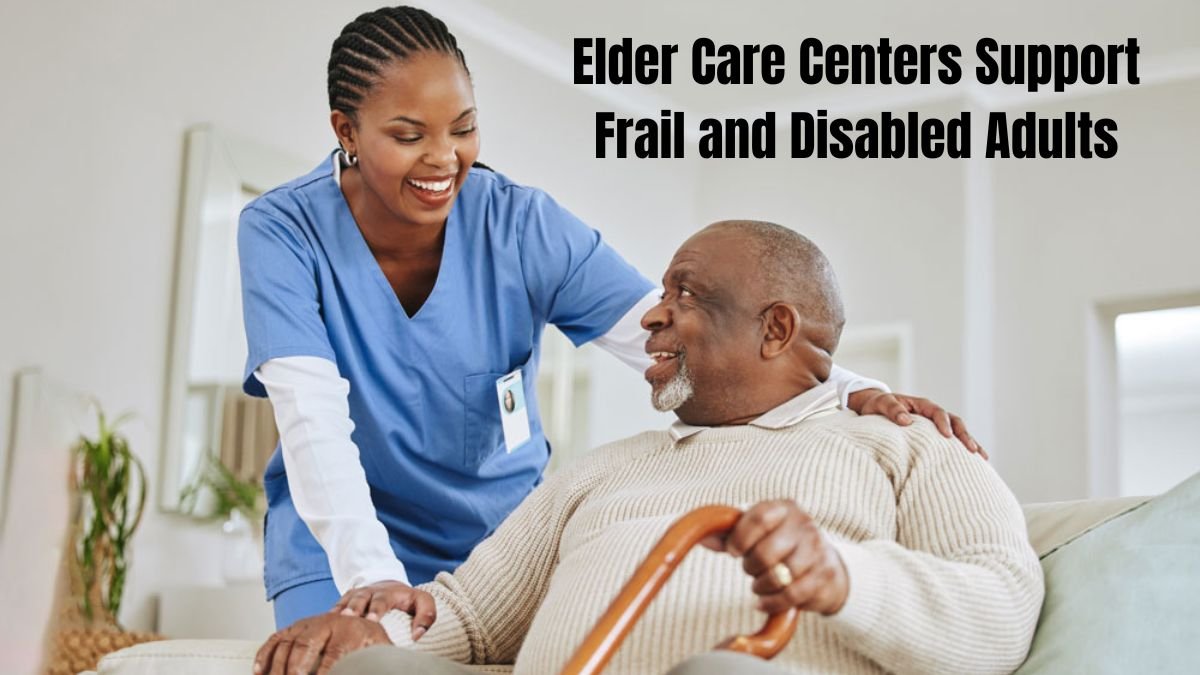In today’s fast-paced world, the elderly, especially those with frail or disabled adults, are finding it increasingly difficult to cope with the challenges of daily life alone. Advancing age, health problems, and limited physical abilities complicate life for them. At such times, old-age homes and elder care centers not only provide physical support but also promote mental and social well-being.
The purpose of old-age homes is not just to provide a place to live, but to create a safe, supportive, and respectful environment for the elderly. These centers offer programs and facilities that improve the quality of life for frail and disabled adults.
Daily Care and Health Monitoring
Frail and disabled elderly people often rely on others for assistance with daily tasks. In old-age homes, professional staff regularly monitor their health, such as checking blood pressure, sugar levels, and general health checkups.
- Medications taken on time
- Physical exercise and physiotherapy
- Providing nutritious meals
- This ensures that the elderly can live a healthy and safe life.
Personal Care and Assistance
Many older adults need help with bathing, changing clothes, eating, and other daily activities. Home staff provide assistance with these tasks, allowing them to maintain independence and dignity.
- Help with bathroom and personal hygiene
- Mealtime assistance and nutritional care
- Support with walking, sitting, and getting up
- This type of personal care enables them to cope with the challenges of daily life.
Mental and Emotional Support
Loneliness and depression are common among frail and disabled older adults. Homes offer a variety of activities to address this mental and emotional need.
- A community experience through group meetings and social events
- Psychological counseling and therapy
- Meditation, yoga, and light exercise
- This boosts seniors’ morale and fosters a positive outlook on life.
Social Interactions and Activities
Holiday homes offer a variety of social activities and hobbies for older adults. These activities not only entertain them but also strengthen their mental health.
- Music, arts, and crafts
- Storytelling and memory-sharing sessions
- Sports and exercise groups
- Thus, the elderly remain connected to their community and maintain self-esteem.
Physiotherapy and Rehabilitation
Physiotherapy and rehabilitation are important for frail and disabled elderly people. Professional therapists and physiotherapists in nursing homes help elderly people improve their physical abilities and recover from injuries.
- Walking and balance techniques
- Joint and muscle strengthening
- Fall and accident prevention measures
- This enables the elderly to live healthy and active lives.
Health technology and digital monitoring
- Modern nursing homes are using smart health technology.
- Heart rate and blood pressure monitoring
- Emergency alert systems
- Digital health records and telemedicine
- These technologies improve the safety and health monitoring of the elderly.
Connection with Family and Community
- Old age homes ensure that the elderly remain connected to their family and community.
- Regular family meetings
- Online video calls
- Community events and celebrations
- This provides emotional support and social security to the elderly.
Specialized Care and Medical Assistance
- Old age homes provide specialized medical care for the elderly with disabilities and serious illnesses.
- Availability of specialist doctors and nurses
- Regular medical checkups and screenings
- Emergency health care
- This ensures that the healthcare needs of the elderly are always met.
Ethical and Respectful Care
- Old age homes provide care with respect and dignity.
- Respect for their personal choices and decisions
- Protection of privacy and confidentiality
- Emphasis on enhancing quality of life and self-reliance
- This approach provides the elderly with a positive mindset and self-esteem.
Conclusion
Today, old age homes and elderly care centers are not just places to live, but centers of holistic well-being. These centers support the elderly in all aspects—physical, mental, emotional, and social. With the help of these centers, frail and disabled adults can live healthy, active, and dignified lives.
These centers not only enhance the quality of life of the elderly but also provide satisfaction and mental relief to their families. Old age homes and care centers have become the most important means of ensuring the safety, dignity, and independence of the elderly in our society.
